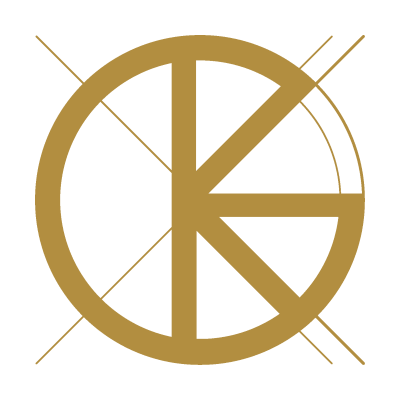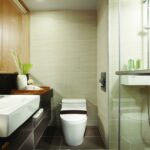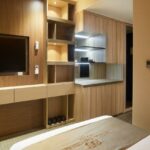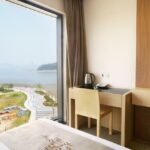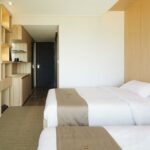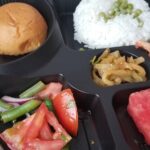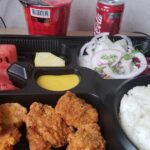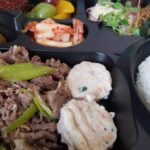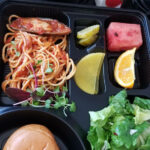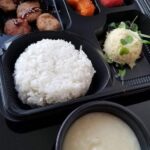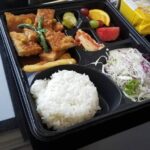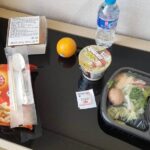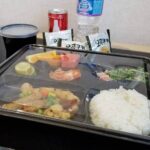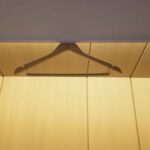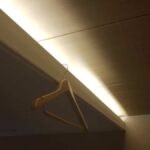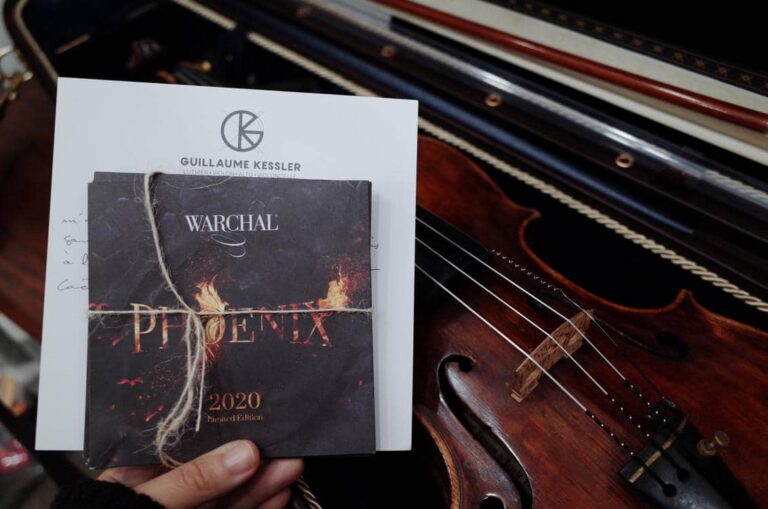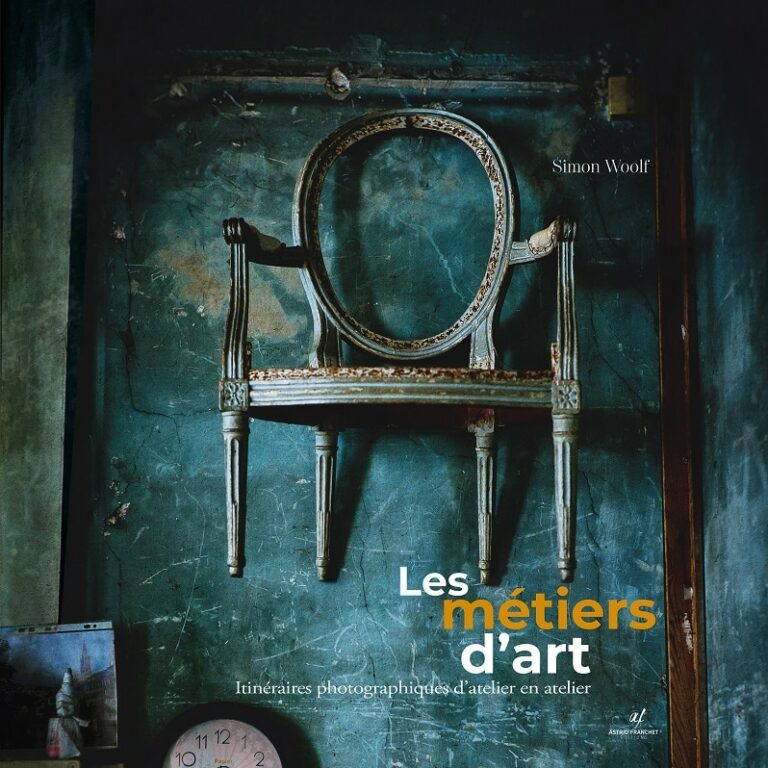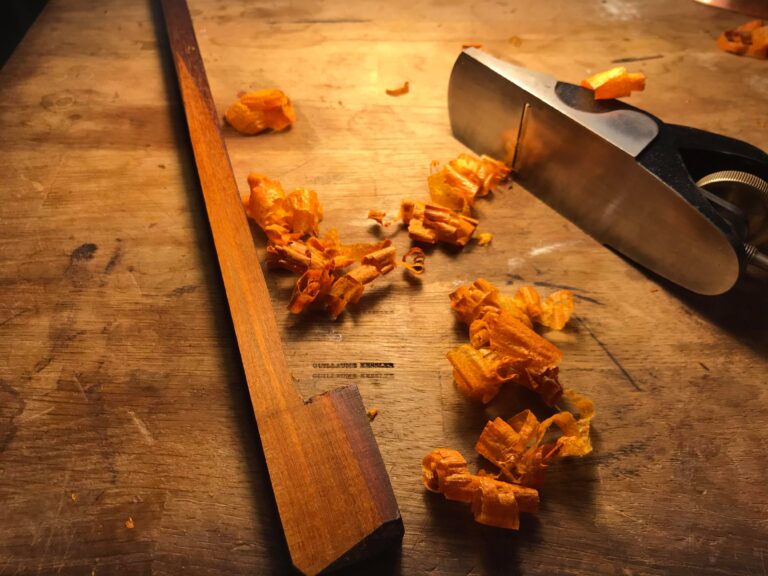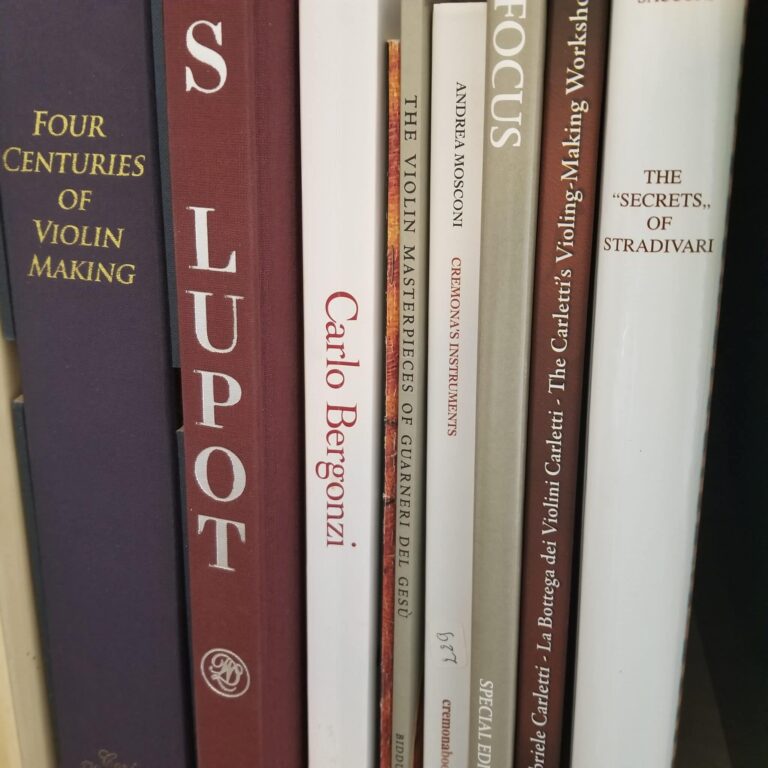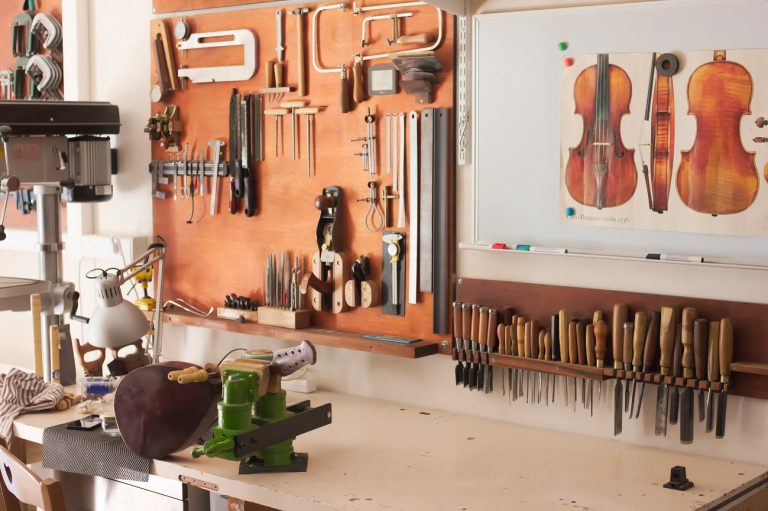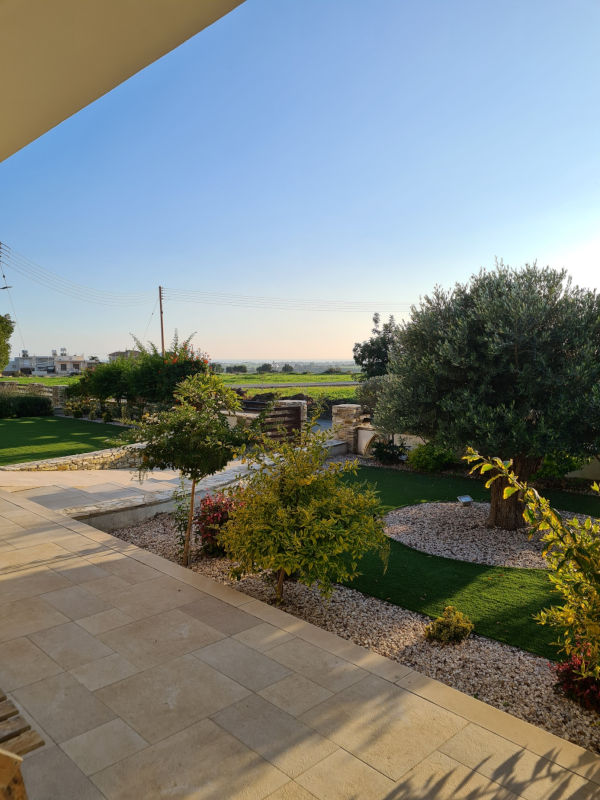There was only one solution for me if I wanted to save some of the projects we'd set up with Korea this year. Indeed, the general lockdown and the pandemic sweeping the world had prevented us from carrying them out. That's why, if I wanted to preserve all this preparation, I had to go to Seoul at all costs. Of course, with the current situation, everything has become much more complicated, as you will discover in these lines. As I'm currently in my forties in Korea, I can take the time to describe my journey. I hope you'll be able to understand what it's like if you want to follow the same path.
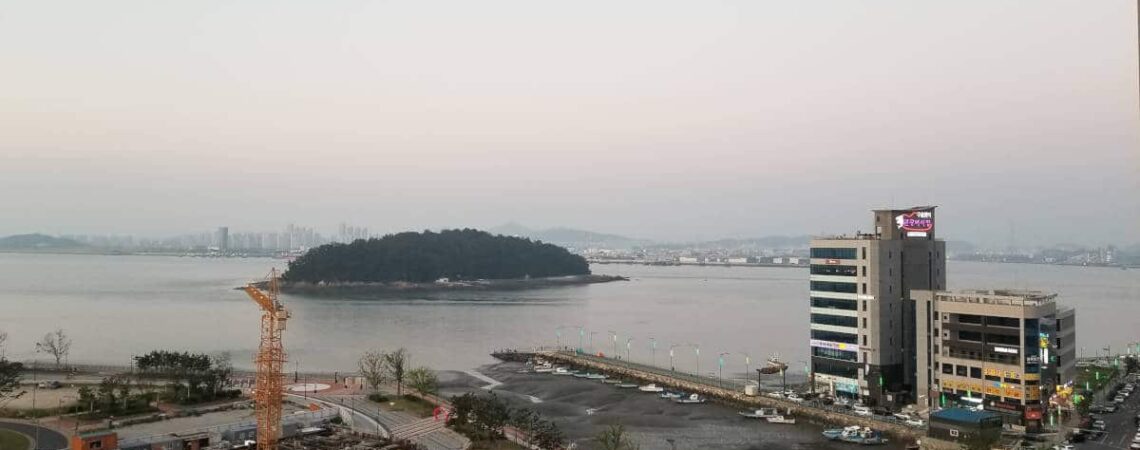
Quarantine in Korea
Before departure
These days, it's a lot harder to travel than it used to be. In fact, this is the direct result of the various directives put in place by governments to restrict the movement of people. These, of course, to prevent the spread of the latest fashionable virus.
So, while we used to be able to travel freely and without a visa to Korea, today it's compulsory to obtain one.
[blog_posts items= »1″ orderby= »date » ids= »21669″]
How to obtain a visa
If you're looking for a visa, you'll quickly realize that there are many... For my part, I applied for a C-3-4 visa, which is in fact a short-term business visa. As I didn't know whether tourist visas were valid at the time, and I was on a business trip anyway, it seemed obvious to me.
However, here are the(many) documents I had to provide in order to obtain this visa:
- Valid original passport. You need to send your own passport to the embassy.
- A standard photo(of a specific size).
- A completed and signed visa application form. The form must also include a Korean address and telephone number.
- A number of documents are also required to justify the business trip: a letter from me attesting to my own trip to Korea, a letter of invitation from the Korean partners, and of course all the supporting documents proving the existence of the companies in question.
- Secondly, you need a Covid-19 medical certificate dated less than 48 hours before sending the documents. This certificate can be obtained by taking a screening test in a laboratory. The process involves sticking a 20-centimeter cotton bud up the back of your nose, which is not the most pleasant experience.
- In addition, you need to fill in a preliminary health questionnaire provided by the embassy.
- You must also sign a consent form for a 14-day quarantine when you arrive in the country.
- What would an official file be without the traditional proof of residence in France?
- Finally, you'll be asked to provide a CV to justify your skills, and to check that they match the information provided.
Visa information
It takes about two weeks for the visa to be returned to you, and the processing fee is deducted even if the visa is refused. For more information, please follow this link: http: //overseas.mofa.go.kr/fr-fr/wpge/m_9488/contents.do.
To give you an idea of the cost of such a visa, here is the list:
- Official photos: 5 euros.
- Visa fee: 35.20 euros.
- COVID-19 screening: €73.59
- Chronopost round trip: 58 euros.(mandatory)
A total of 171.79 euros to add to your travel budget.
Departure for Korea
First and foremost, you need to know that air traffic these days is fairly limited. For example, at Roissy-Charles de Gaulle airport, from which I departed, around 30% of the usual flights take off every day. The advantage is that there won't be many people in the halls, and the various obligations will be carried out quickly.
On the other hand, it may be more difficult to find a flight that perfectly matches your needs. Likewise, you'll have to give preference to direct flights, as many connections are no longer guaranteed. What's more, tickets will generally cost more than we were used to before.
On the plane
I flew this time with Korean Air, a direct flight to Seoul that took around eleven hours. There were very few people, and many seats were empty, so that many rows were completely empty. I could also see that, apart from people travelling in groups, there was always a separation maintained between passengers.
Well, the only noticeable difference was that all the travellers wore masks... But otherwise, everything remained as before.
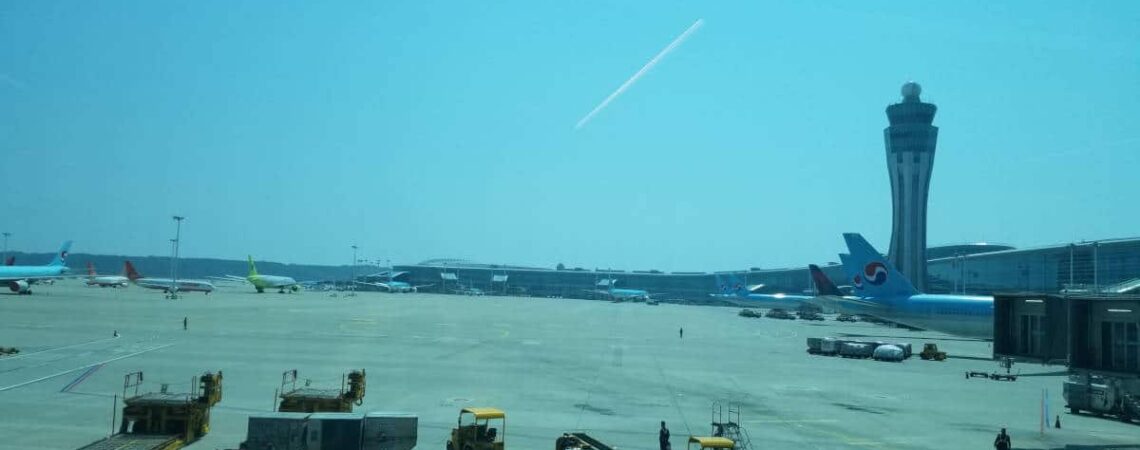
The beginning of quarantine in Korea
Once at the airport, that's where the confusion begins. No information had been given before I arrived in Korea. So I didn't know where the quarantine site was, how long it would last, let alone how much it would cost me, because yes, there is a fee for this compulsory stay.
At the airport
Once off the plane, military personnel had set up a whole circuit. An army of young Koreans, no doubt in the midst of their civic service, occupy the various booths along the route to the usual passport controls. This is where we usually receive our entry permits.
This starts with the installation of the governmental self-diagnosis and monitoring application. Everyone has to install this monitoring program on their phone, before having it checked by the supervisor. Then begins the long process of completing and validating paperwork.
One of these steps is to have your phone checked, to make sure that your number works and corresponds to what you've indicated on the paperwork. We also check that the application is operational and that your initial diagnosis has been carried out. Next, someone calls your guarantor in Korea to check the information you've provided.
Once you've completed the journey, you can pass through the checkpoint, where you'll be given your entry permit and a flashy badge around your neck. Then it's time to collect your luggage. For my part, I had to make a stop at the customs post to register the instruments I was carrying, but there's nothing very different here from what usually happens.
Leaving the airport
As I pass through the doors leading to the arrivals hall, I am greeted once again by soldiers in full body suits. They tell me to follow them outside to a series of tents where a new stage awaits me each time: checking papers, filling in forms, nasal and buccal swabs for screening... Happiness!
I am then invited to sit on a bench with other foreigners who have also just landed. None of us knew where the rest of the journey would take us. It's only after a few dozen minutes' waiting that we're invited to board a bus. When the driver takes his seat a few minutes later, the policemen escorting us tell us that the journey will take no more than half an hour.
We travel on like this until the bus stops in front of a large building, a hotel with the pompous name of Royal Emporium. It's on the island of Incheon airport where we came down from the sky.
Hotel arrival
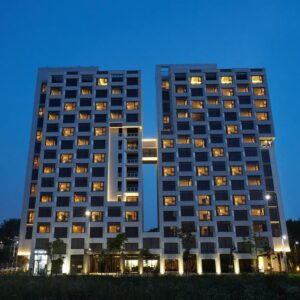
Once off the bus, we are greeted by the government agents assigned to this quarantine facility. After a temperature check, a short training session on the use of a thermometer and the installation of a new self-diagnosis program, we are invited one after the other to pay for our stay.
The fourteen nights and full board cost a total of 1,400,000 Won, or around 1,060 euros. A budget equivalent to 75 euros per day.
To the bedroom
Une fois le paiement complété, il m’est remis un repas et des sacs poubelles (orange fluo avec des symboles « danger biologique ») qui me serviront à me débarrasser de mes déchets suspects pendant mon séjour. De plus, je reçois la carte magnétique de mon lieu de vie.
I was then guided to the elevator by an agent in overalls. The narrow steel shaft that took me to the eleventh floor had been freshly decontaminated, and the walls and floor were coated with a translucent, viscous and oppressive gel. When I reached my bedroom floor, I noticed that numerous orange plastic bags, the same ones that had been entrusted to me, littered the floor. The rooms were completely empty, no sheets, no pillows and something seemed strange.
Discovering my room
It was only later, as I was unpacking and getting ready to eat, that an officer came to announce that we'd been placed in the wrong wing. These rooms were in fact still being decontaminated. A rather gross error, which wouldn't have surprised me in any other country... But nothing too embarrassing, since there's no real contamination, well, no more than in any other hotel room.
It was with a final effort that I was finally able to reach the room I'd be living in for the next two weeks. And so closed the cement, wood and glass coffin that would endure my presence during the quarantine in Korea, MY quarantine in Korea.
Everyday life in Korea in midlife
The hotel room
If you've ever lived in a 12m2 studio apartment in France, you'll know what to expect. However, there are a few peculiarities specific to this solitary stay. Not least of which is the fact that it's impossible to obtain an exemption to go jogging near the beach. Any infringement is punishable by fines or permanent expulsion from the country.
But in the end, the conditions aren't really that extreme. Even if you can't move around too much, I'd say the location isn't too bad.
- There's air conditioning, of course, but also a window fitted with a mosquito net. Fresh air, that's what it's all about.
- A small desk and chair allow me to work on my computer and eat my meals.
- Then there's a bit of electrical equipment, with a kettle and mini-refrigerator in one of the cupboards.
- A real bathroom equipped with towels and hygiene products(soap, shampoo, toothbrush, toothpaste, etc.).
- In terms of entertainment, there's not only a TV and Internet connection, but also a Bible in the bedside drawer.
- Finally, three pairs of slippers so I can change them as I please. However, I regret the absence of bathrobes!
What's this hotel worth?
You can make up your own mind after viewing these photos.
By doing some research on the Internet, however, I was able to determine that the price of the room was well over 50 euros per night. So, including expenses, the package we're offered isn't unaffordable on a full-board basis... But we're still talking about paying to be locked in for two weeks. Which, of course, destroys any attempt to measure value for money.
Meals
If there's one thing that's important during confinement, it's food. Its distribution gives rhythm to the day and brings a moment of excitement that reminds us a little of the canteen era. You know, that moment when you're really hungry, but you have absolutely no idea what you're going to be served, or how much. Whatever it is, it always happens at the same time:
- Breakfast at 8 o'clock.
- Lunch at 12.
- And finally supper at 6 p.m.
Every time, the same ritual: someone knocks on the door or rings the bell. I open the door and a small plastic bag awaits me, containing a treasure trove of victuals. But this booty fluctuates, as the following photos attest:
One thing's for sure, apart from the soups into which I added the boiling water I made myself, none of the meals delivered to me were still hot when I was served. Long live quarantine in Korea and the indoor picnic.
Si vous voulez suivre mes aventures culinaires, allez jeter un oeil à mon album de stories « Corée 2020 » sur Instagram. Il y a des choses assez surprenantes !
Deliveries

It is possible to have your order delivered to your hotel room, but there are a few conditions. Here's the answer I received from a government agent:
[pullquote align= »center »]
« Lorsque votre colis arrive, nous allons l’ouvrir et le fouiller pour vérifier qu’il ne contienne pas de cigarettes, d’alcool, d’armes ou de nourriture périssable. »
[/pullquote]
However, I tested it for you since I received a supply package. Yes, I must admit that the photos of the meal trays (탕수육) I posted on Instagram were so pitiful that everyone wanted to send me food... The only problem is that it's impossible to send something really good!
It seems that books can be delivered(admire that succession of words), but it's impossible to have a musical instrument deposited. So you'll have to check on a case-by-case basis, depending on what you want to buy during your quarantine!
Laundry
It's natural to wonder what's going to happen to our clothes... Because two weeks of dirty laundry is quite a lot. In any case, it was a question I hadn't found an answer to before arriving... And it wasn't clear until I wondered about the presence of two different soaps.
In fact, you'll have to wash your own clothes in the little sink in the bathroom. So far, so simple, but then comes the big problem. There's no place to hang the clothes you've just washed.
If this ever happens to you, here's the method I've devised: use the seven hangers in the closet and use any edge that will allow them to hang properly in the room... And believe me, there aren't many that are usable with the weight of wet laundry!
Self-diagnosis
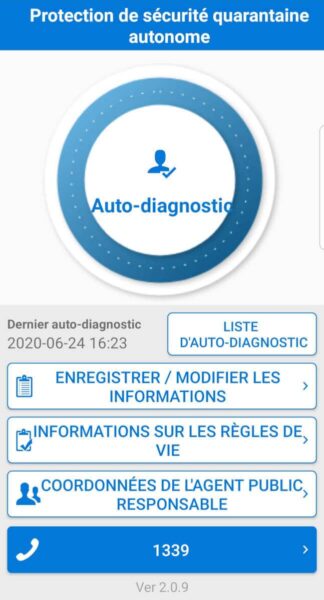
This practice is an integral part of confined life. Every day, you take your temperature with a thermometer placed in the armpit. Then you describe your condition and any symptoms.
The days are also punctuated by alerts that you'll receive on your phone with a strident ringtone. However, this is only general information as far as I understand it.
Government radio
It's not really a radio, but rather a program that comes on quite randomly. In fact, all the rooms seem to be equipped with a loudspeaker that broadcasts messages during the day and even at night. Indeed, I remember that on the first day a message was broadcast after midnight, but it didn't happen again after that.
These messages are often recommendations on the best practices to adopt during quarantine. But more often than not, they are reminders to those who would dare violate the protocols. They are pronounced by a robotic female voice that becomes almost absurdly repetitive.
It is forbidden to:
- Smoking
- Drinking alcohol
- Trying to get out of your room
- Meet other residents
- To throw or spit out of the window
- It's also advisable to follow a set of rules.
These audio speeches are given in English, but sometimes in Korean, Chinese or Russian... However, it's totally random and I don't really understand what the use of such a practice would be... Unless it's only addressed to one person and would highlight the use of cameras or other means of spying. I'm getting paranoid!
Political tensions
In fact, living in quarantine in Korea, I never imagined I'd be involved in a conflict between the government and local residents. Indeed, the locals take a dim view of the use of this hotel as a concentration point for potentially infected people. In particular, it would put their children at risk, and reduce business activity and the value of the surrounding area.
That's why every day, or rather every night, they gather in front of my room. Always the same ritual, first playing the same song that seems to have come straight out of the most kitsch nationalist epics, then taking turns in a series of insulting tirades towards the government employees on hand. One evening, the angry man who took the microphone shouted so loudly that the sound system failed.
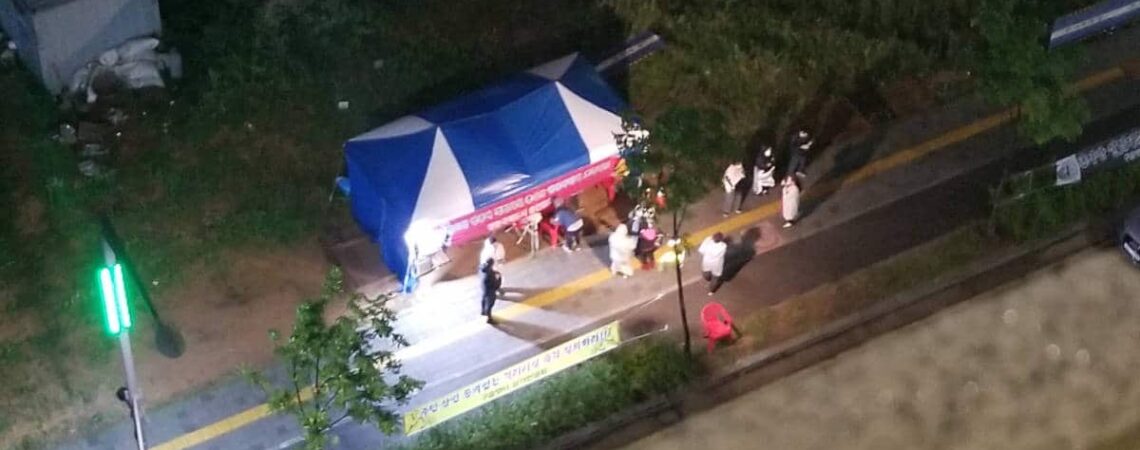
Then they play the same recorded soundtracks, in which two characters speak directly to the residents in solitary confinement in a robotic voice. They say they'd rather be home, and that we're not their enemy. However, they still ask us to contact the government to share their message, since the government seems to be turning a deaf ear to their requests.
A nocturnal cacophony
In short, between the loudspeakers blaring government messages all day long in the room and the evening being assaulted by the huge sound system of the demonstrators, I invite you to believe that things are lively around here.
D’un côté, ceux qui clament : « ouvrez vos fenêtres et écoutez nous » pendant ce que dans la chambre une voix m’ordonne de fermer la fenêtre. Cette situation est presque comique tellement elle semble être sans issue. Si vous voulez comprendre l’ambiance, suivez mes stories Instagram sur « Corée 2020 ».
Demonstrations in South Korea
Korea attracted a lot of attention during the epidemic, often applauded or singled out for criticism depending on how people interpreted their government's decisions. As I listened absent-mindedly to the news in France, I understood that Koreans were perceived as a submissive people whose rulers regularly abused them with repressive measures.
However, on the streets during the periods I was in Seoul, I saw protest rallies all the time. These demonstrations directly challenged the actions of the political classes... And in fact, a few years ago, Koreans threw their president straight into prison after taking to the streets in their hundreds of thousands.
Anyway, it doesn't matter, but I thought the discrepancy was pretty funny.
Medical care
Just before leaving, I burned myself on a bending iron in the middle of my hand. I'd had absolutely no time to take care of it in France, just enough to soothe the burn but not to treat the skin. It was very bad timing, but I was lucky in the end...
As you can imagine, in a facility with potentially sick people, there must be nursing staff. It's hard to say exactly how many, but right from the start, we were greeted by several nurses. As a result, we were given telephone numbers and e-mail addresses so that we could let them know of our requests.
When I reported my burn and discomfort, I was able to speak to a nurse on the phone who then had what I needed passed on to me with the next meal tray. I was not asked to pay anything for the care and ointment provided.
I can't really talk about the rest. But in any case, I imagine that the on-site staff are very attentive to residents living alone in their forties in Korea.
Coming out of quarantine in Korea
Two weeks in a hotel room is a truly unique experience. Especially considering the jet lag and sleepless nights.
But I didn't really get bored, as I spent my time writing articles for my website. Not to mention catching up on all the administrative tasks I'd left aside, knowing I'd only have this to do. On top of that, I've been trying to keep in touch with you as much as possible. A pleasure I hope to continue for the rest of my trip.
And last but not least, I'm also preparing all my appointments for the coming weeks, which is really exciting!
I go out on the night of Friday to Saturday, July 4, at midnight... And then the real adventures await me in the land of fresh, clear mornings. And so ends my little story of quarantine in Korea.
